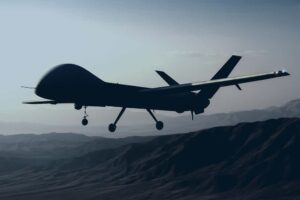
The annual IDF intelligence assessment suggests that 2020 will be an explosive year for Israel. Despite some attempts to downplay the risk of war, the estimate’s underlying message is that Israel-Iran tensions will likely erupt into a major military clash.
The sections of the document released for public consumption Tuesday foresee a low probability of Israel’s enemies launching a war. However, the IDF estimate sees a higher chance that Iran or Hezbollah will respond in force to continued Israeli strikes in Syria and elsewhere.
Moreover, the assessment sees an opportunity to expel Iran from Syria in 2020 by boosting IDF strikes on Iranian targets. Notably, senior officers, as well as Defense Minister Naftali Bennett, are increasingly urging a more aggressive military campaign.
Given the above, intensified Israeli operations are almost certain to trigger a major Iranian response, either directly or via regional proxies. This will in turn provoke an Israeli counter-punch that could very well escalate the situation further.
Overall, the dynamics are such that any strike from one party could trigger a chain-reaction that leads to war. Hence, the assessment that Israel’s foes are unlikely to initiate a war is mostly a matter of semantics. In reality, there is a heightened risk of a serious clash at some point this year.
The Nuclear Threat
Similarly, reassurances that Iran is not yet ready to break out toward a nuclear bomb are largely tentative. The same is true for calculations about Tehran’s current pace of uranium enrichment.
According to the IDF estimate, Iran still aims to boost its bargaining position ahead of talks on a new nuclear agreement. The annual intelligence report also notes that the Iranians continue to enrich uranium at a slow pace.
However, the assessment stresses that nuclear programs tend to be clandestine in order to evade detection by foreign spy agencies. Hence, Iran could very well seek to advance its atomic project via a parallel, secret track.
Tehran could also decide to expel international nuclear inspectors and accelerate the pace of enrichment by using advanced centrifuges. In conclusion, the intelligence snapshot may not reflect potential developments later this year.
This could mean that despite the current assessment, Israel may face the dilemma of bombing Iran’s nuclear sites in 2020. Even according to the optimistic scenario in the IDF estimate, Iran will have enough enriched uranium for one atomic bomb by the fall of this year.
All of the above promises that 2020 will be a very volatile year, even in Middle Eastern standards. The Israel-Iran standoff will likely erupt into a flareup one way or another, and any conflict could quickly spill over to other theaters as well.
In the final analysis, Israel will have to maneuver carefully as it works to counter the threats it now faces. However, the decision on whether to slide into war could ultimately be made in Beirut or Tehran.


